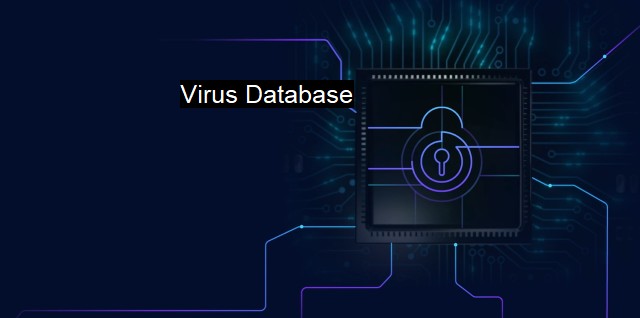What is Virus Database?
The Importance of Virus Databases in Cybersecurity: Understanding Their Role in Protecting Your Digital Devices
One of the cornerstones of safe and effective data management is the concept of the virus database. The notion refers to a comprehensive collection of all known variants of computer viruses, malware, ransomware, trojans, adware, and other malicious software (often abbreviated as 'malware'.) An aggregated archive is a fundamental component of antivirus software, acting as an essential tool to identify, quarantine, and eliminate potential threats that can compromise the security and the function of a system.Before delving into the specific role of a virus database within antivirus software, it is crucial to understand what a computer virus or other types of malware are since this is what the database is designed to guard against. Generally, a computer virus refers to a piece of code that is capable of copying itself and corrupting system data while other malware types may sneak into a system, capture sensitive information, messaging traffic, or take control over system resources. More advanced forms can spread over networks, reproduce themselves, and bypass security systems.
Antivirus software is a subset of cybersecurity services that scans, identifies, and eliminates viruses and other malicious software before they can embed and propagate within the user's digital framework. More advanced solutions may also accommodate preventive measures, network inspections, and zero-day threats recognition.
The virus database is at the heart of these antivirus software. These databases are collection of unique signatures or identification markers for known malicious software which includes their typical "behavior". As part of their operation, antivirus software continually reference this virus database, comparing files and programs on the user's system against this database to check for any matches. When the antivirus software discovers a file or program that matches one found in the database, it takes steps to quarantine or eliminate the potential threat, thus ensuring the overall health and security of the user's system.
The effectiveness of a virus database and, by extension, the antivirus software largely depends on the completeness and up-to-datedness of the database. Given the incredibly volatile and dynamic nature of cyber threats, with thousands of new malware variants being discovered every day, maintaining a comprehensive and up-to-date virus database presents a vast challenge. Cybersecurity firms confront this issue by conducting continual research, scanning the internet, dark web, and other platforms for new threats and updating their databases accordingly.
In the contemporary age of internet connectivity, cloud-based virus databases are becoming more commonplace. Antivirus software can simply connect to the database through the internet and access the most relevant and recent data concerning threats and vulnerability management. This speeds up the process of detecting viruses and ensures that the antivirus software is always updated with the latest threats. Up-to-date databases are critical in providing accurate threat detection and securing digital assets.
a virus database is a vital component of both proactive and reactive cybersecurity measures. Equipped with knowledge about millions of known malicious threats and regularly updated to encompass new ones, a robust virus database can offer significant assistance in protecting personal and business data. despite the most advanced antivirus mechanisms built on the latest virus database, cybersecurity is an ongoing process. Users must keep software and systems continuously updated and create regular backups as part of a broader strategy to safeguard against the pervasive threats in our increasingly digital world. The relentless development and evolution of malicious code mean that virus databases, and antivirus software by extension, will continue to be an indispensable part of computing and data management.

Virus Database FAQs
What is a virus database?
A virus database is a collection of known virus signatures and patterns used by antivirus software to detect and remove malware from a computer or network.How are virus databases updated?
Virus databases are updated regularly by antivirus vendors to include the latest virus definitions and signatures. Updates can be done through manual or automatic updates over the internet.Can a virus database protect against all types of malware?
A virus database can only protect against known viruses and malware for which signatures have been identified. New and unknown malware may not be detected by the virus database alone. That's why users are advised to use additional security measures in addition to antivirus software.How can I ensure my virus database is up-to-date?
You can ensure that your virus database is up-to-date by enabling automatic updates in your antivirus software. Also, it is recommended to periodically check the status of virus database updates to ensure that you have the latest protection against the latest threats.| | A | | | B | | | C | | | D | | | E | | | F | | | G | | | H | | | I | | | J | | | K | | | L | | | M | |
| | N | | | O | | | P | | | Q | | | R | | | S | | | T | | | U | | | V | | | W | | | X | | | Y | | | Z | |
| | 1 | | | 2 | | | 3 | | | 4 | | | 7 | | | 8 | | |||||||